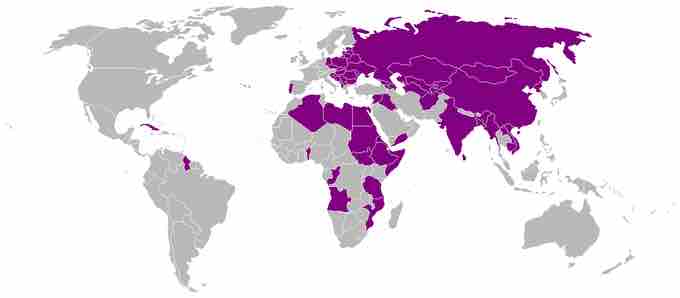State-centered theories of inequality emphasize the role of governmental policy and economic planning in producing economic stratification. In contrast to market-oriented theories of inequality, state-centered theories do not assert that the capitalist free-market will naturally regulate prices and wages. State-centered theories assert that intentional state policies must be aimed at equitably distributing resources and opportunities.
Socialism and Communism
Socialism and communism operate on the assumption that states can regulate (and potentially eliminate) inequality. Socialism is an economic and political system in which the state owns the majority industry, but resources are allocated based on a combination of natural rights and individual achievements. Communism operates on the principle that resources should be completely equally distributed, on the basis that every person has a natural right to food, shelter, and generally an equal share of a society's wealth. Socialism includes a combination of public and private property, while under communist systems all property is publicly held and administered by the state.
A socialist economic system would consist of an organisation of production to directly satisfy economic demands and human needs. Goods and services would be produced directly for use instead of for private profit driven by the accumulation of capital. Accounting would be based on physical quantities, a common physical magnitude, or a direct measure of labour-time. Distribution of output would be based on the principle of individual contribution.
State-centered theories of inequality critique market-driven ones on the basis that capitalists embroiled in the free-market will act to increase their own wealth, exploiting the lower classes. Accordingly, these theories propose that states should enact policies to prevent exploitation and promote the equal distribution of goods and wages.

Map of Socialist States
This map of all states to declare themselves officially socialist at some point in history illustrates the spread of state-centered theories of inequality.